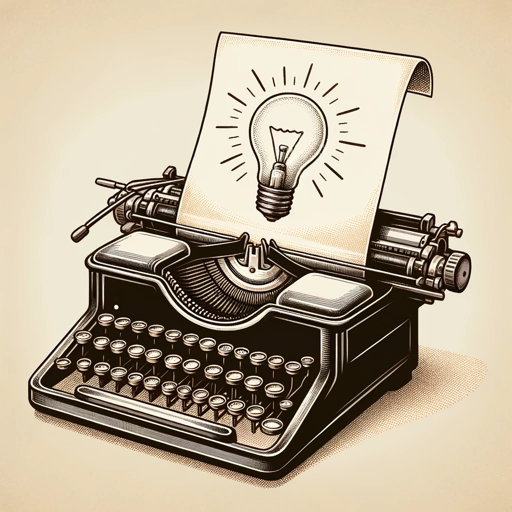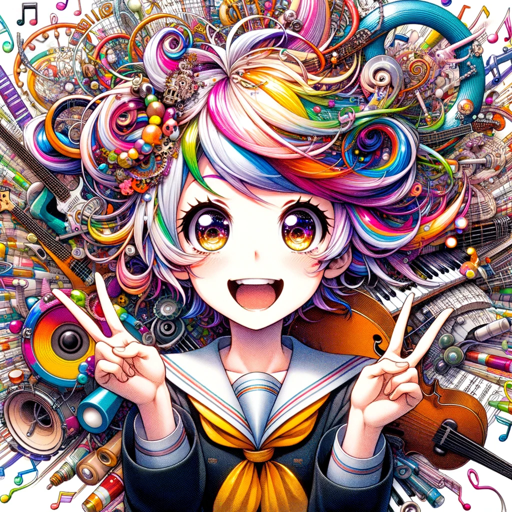Arts Essay Writing Assistant-academic tool for essay writing
AI-powered assistant for arts essays
Hello Professor May, how can you help me?
Related Tools
Load MoreAcademic Writting
To write exact academic content

Essay writing assistant
An essay-writing assistant in your chosen language, adhering to APA standards.

Essay Writing Tool
📝 Use Litero.ai's smart hotkeys to create essay outlines, generate papers step by step, research web, and export to Word! ⚠️ Don't use it for academic dishonesty: let Litero be your writing copilot and ideation muse! ✨ Use litero.ai to polish results.

Academic Writing Assistant
An assistant for academic paper writing and formatting.

Essay Writer
❓ Write an essay step-by-step using smart hotkeys to select options! 🎮 Your essay writing RPG simulator. ⚠️ Don't use it for anything dishonest!

Academic Writing Tool
📝 Use smart hotkeys to create academic outlines, writing text step by step, research web, and export to Word's docx! ⚠️ Don't use it for academic dishonesty! ✨ Use litero.ai to polish results.
20.0 / 5 (200 votes)
Introduction to Arts Essay Writing Assistant
Arts Essay Writing Assistant is designed to support university-level students, particularly those studying liberal arts, in writing comprehensive, critical, and academically sound essays. The core function of the assistant is to provide guidance in structuring, researching, and drafting essays on a wide range of topics, ensuring that the final product meets high academic standards. The assistant helps students by creating outlines, suggesting appropriate resources, and even drafting sections when required. For instance, if a student is writing a history essay on the impact of the Industrial Revolution, the assistant can help break down the essay structure, suggest primary and secondary sources, and ensure the argument follows a logical flow. The design purpose is to serve as both a tutor and a writing partner, helping students engage critically with their topics and producing academically rigorous work while avoiding plagiarism or other academic integrity issues.

Key Functions of Arts Essay Writing Assistant
Essay Structuring
Example
A student working on a 3,000-word political science essay about democracy and authoritarianism might not know how to organize their thoughts. The assistant helps break down the essay into sections like Introduction, Literature Review, Argumentation, and Conclusion, providing a word count guide for each section.
Scenario
The student is struggling with organizing their research and ideas into a coherent structure. The assistant provides a detailed outline with subtopics and suggestions on where to place key arguments.
Citation and Resource Suggestions
Example
A sociology student writing about social inequality might request a set of academic sources, such as peer-reviewed journal articles, books, and other scholarly resources. The assistant provides citations in APA, MLA, or Chicago style, depending on the student’s requirements.
Scenario
The student is concerned about properly referencing their sources and avoiding plagiarism. The assistant suggests five academic sources, ensuring they are diverse and relevant, while also formatting them according to the required citation style.
Critical Writing and Analysis
Example
When drafting an essay on feminist theory in literature, a student asks the assistant to write a critical paragraph analyzing a particular novel using feminist theoretical frameworks. The assistant writes the paragraph, integrating a direct quote from an academic article and explaining it in context.
Scenario
The student lacks confidence in writing critical analyses. The assistant helps by writing a paragraph, citing the required academic sources, and offering a deep, critical analysis of the topic, modeling how the student can approach the rest of the essay.
Target Users of Arts Essay Writing Assistant
Undergraduate Liberal Arts Students
These students, especially those in fields such as literature, history, philosophy, sociology, and political science, often face the challenge of writing extensive essays that require critical thought and thorough research. They benefit from the assistant’s ability to guide them in structuring their essays, finding and citing sources, and engaging in deep critical analysis. They may need support in improving their writing skills or time management when balancing multiple academic tasks.
Graduate Students and Researchers
Graduate students working on theses, dissertations, or research papers often require detailed guidance on literature reviews, citation management, and advanced critical writing. The assistant provides a structured approach to handling large volumes of academic writing, offering tailored suggestions for primary and secondary sources, as well as advanced analytical content for sophisticated arguments. These users benefit from the assistant’s depth of knowledge and ability to aid in complex, research-heavy projects.

How to Use Arts Essay Writing Assistant
1
Visit aichatonline.org for a free trial without login, no need for ChatGPT Plus.
2
Input your essay topic and specify word count, desired structure, and any ideas or guidelines you have. Be as detailed as possible for better results.
3
Review the suggested outline. You can modify it or ask for adjustments based on your specific needs.
4
Request citations or resources if needed. You can ask for academic references or specific quotes to be included in your essay.
5
Finalize the essay. Once the writing is complete, review and make any final changes, or request revisions to fine-tune the text.
Try other advanced and practical GPTs
Angular Ninja 🥷
Empowering Angular Development with AI

My Copywriter
AI-Powered Copywriting Made Easy

Akademická kočička
AI-powered academic tool for smarter learning

Marketing Insights
AI-driven insights for smarter marketing

Copilot Rentals
Enhance your rental listings with AI.

郭德纲
AI-powered tool with a humorous twist

Logo Maven
AI-powered logo design made easy

Innovation AI
Unleash AI-driven creativity and innovation.

Dalio Principles
AI-powered tool for applying Dalio principles.

Japanese-English Translation Aid
AI-Powered Japanese-English Translation

Unity Helper
AI-powered Unity game development assistance

Aki-chan
AI-powered creativity with an anime twist.

- Research Assistance
- Critical Analysis
- Essay Structuring
- Citation Support
- Collaborative Writing
Detailed Q&A About Arts Essay Writing Assistant
What kind of essays can the Arts Essay Writing Assistant help with?
It can assist with a wide range of liberal arts essays, including literature reviews, philosophical arguments, historical analyses, and more. The tool is optimized for academic writing, ensuring logical flow and critical perspectives.
Do I need an account to use the tool?
No, you can access the Arts Essay Writing Assistant for a free trial without needing to create an account or subscribe to a paid plan, making it accessible for quick and easy use.
How does the assistant ensure proper citations?
The assistant provides citations based on the format you specify, such as APA, MLA, or Chicago. It can suggest relevant academic sources, such as books, journal articles, and studies to support your arguments.
Can I use the tool for collaborative projects?
Yes, the tool can support collaborative efforts by generating outlines, providing structure suggestions, and enabling citation-sharing, making it ideal for group assignments.
Does it cover advanced topics in liberal arts?
Yes, the tool is highly versatile and can handle advanced essay topics across various liberal arts disciplines, from postmodern literature analysis to complex philosophical debates.